Abstract 6/2013
Table of content
Łukasz Gryga, Michał Wojtaszek, Grzegorz Firlejczyk – Urban traffic control system and public transport priority in Cracow
Michał Wojtaszek, Łukasz Gryga – Monitoring cameras for traffic restricted area and separated bus’ lanes in Cracow
Piotr Dera – Public transport priorities with special regard for shared tram-bus lanes in Cracow
Piotr Hamarnik – Reliable information as a basis for effective implementation of the sustainable transport in Cracow
Adrian Obuchowicz – Use of the EU projects for creation new innovative transport solutions
Stanisław Jurga – Directions of the renewal of tram vehicles of the MPK S.A. in Cracow determining realization of transport services
Paweł Matoga – ‘Vienna’s style‘ stops in Krakow
Krzysztof Francuz, Adam Wiśniowski, Piotr Dera – Analysis of implemented changes in public transport in Cracow with reference to application of macro-simulation models
Abstracts
Łukasz Gryga, Michał Wojtaszek, Grzegorz Firlejczyk
Urban traffic control system and public transport priority in Cracow
Abstract: The paper describes development of the Urban Traffic Control System of Cracow’s street and giving priority to the vehicles of public transport at the traffic lights. At the beginning authors undertake an essay to present principles of traffic lights programs of high quality on the basis of their own professional experiences. Afterwards first Urban Traffic Control System implemented in Cracow in the framework of the project Cracow Rapid Tram has been described. First conclusions and results of this implementation have been presented as well. Then authors have described next implemented system connected with the new tram line construction with terminus at the Mały Płaszów. At the end of this part of the article authors have listed projects related to the expansion of existing systems both: with tasks being under implementation just now and designed for realization in the near future. In the second part of the article authors have focused on the issue of priority for vehicles of public transport. Basic principles of implementation of the priority as well as examples of these realizations at Cracow intersections with traffic lights have been presented. Finally the most typical problems appearing during public transport priority implementations have been discussed. The paper presents considerable knowledge on traffic light’s functioning, development of traffic lights programs and implementation of urban traffic control systems based mostly on author’s experiences, real situations and problems they have faced.
Key words: passenger transport, public collective transport, public transport priority, traffic steering
Michał Wojtaszek, Łukasz Gryga
Monitoring cameras for traffic restricted area and separated bus’ lanes in Cracow
Abstract: Article describes way to the project System of Zone Access Control for Traffic Restricted Area and Public Transport’s Lines in Cracow which implementation starts in 2013 in Cracow. The aim of this task is to organize control in traffic restricted areas and over bus lines in the city centre. The history of implementation of traffic restrictions in Cracow, developments of solutions promoting public transport including separated bus’ lines has been presented in the article. Then first attempts of organizing vision control registrating vehicles on the basis of number plates have been presented. Finally the most important measures concerning the project System of Zone Access Control for Traffic Restricted Area and Public Transport’s Lines in Cracow have been discussed.
Key words: monitoring, traffic restricted area, zone access control, separated bus’ lines, bus improvements
Piotr Dera
Public transport priorities with special regard for shared tram-bus lanes in Cracow
Abstract: Growing number of vehicles causing raise of street congestion has caused decline in conditions of tram’ and bus’ transport quality in the Nineties of last century. This phenomenon contributed with implementation of priorities in the traffic for the public transport vehicles in order to improve their attractiveness and to encourage possible passengers to use this mode of transport. Solutions implemented in the scope of separated tram-bus lanes in Cracow in the light of transport policy have been presented in the article. Especially solutions in the field of integration of tram’ transport and bus’ transport (shared bus-tram lanes) have been described. Also evaluation of implemented solutions has been prepared.
Key words: passenger transport, collective transport, public transport priorities
Piotr Hamarnik
Reliable information as a basis for effective implementation of the sustainable transport in Cracow
Abstract: In the times of modern mass media more and more important role to reach citizens plays direct information which provides possibility to present to the public point of view and intentions of the institutions and companies. The article presents activities undertaken by the Municipal Infrastructure and Public Transport Management (ZIKiT) in the scope of information concerning system of sustainable transport in Cracow.
Key words: passenger transport, information, sustainable transport
Adrian Obuchowicz
Use of the EU projects for creation new innovative transport solutions
Abstract: The EU funds aiming at improvement of quality of life have been used in Poland for many years. Also in the scope of public transport Polish cities seek intensely for solutions – new for us but proven in other countries. City of Cracow has taken part and is still involved in many projects and initiatives which serve to exchange of experiences between cities of the European Union. Civitas Caravel is one of such projects which resulted with a new transport service Tele-bus. It is an example of successful exchange of technologies, knowledge and experiences between partners in the project. This service has been provided to the passengers continuously since 2007 and it has already been expanded for few times.
Key words: passenger transport, innovations, request bus (telebus)
Izabella Bruchal
Passenger information in the system of Cracow public transport
Abstract: Passenger information is one of important elements of organization of public collective transport. Its main tasks are: saving time and improvement of comfort of passengers through reduction of their effort to seeking of information. Traditional modes of information slowly belong to the past. They are replaced with more modern, comfortable, effective solutions with larger scope and range of operation. Cracow may be praised with considerable achievements as far as implementation of innovations in the passenger information system is concerned. Traditional solutions are modernizing but first of all projects with components containing new modes of passenger information are being implemented.Undoubtedly the biggest achievement is the PIS – Passenger Information System which implementation has started in 2005. In the beginning it contained 44 boards of DPI – Dynamic Passenger Information at 23 tram’ stops in the corridor of Cracow Rapid Tram (KST). During following investment activities, boards of DPI have been installed on some tram’ stops. This system supports passengers who wait at the stops and provides with suitable visual information concerning expected times of arrivals of public transport’ vehicles.
Key words: passenger transport, passenger information, dynamic pasenger information
Stanisław Jurga
Directions of the renewal of tram vehicles of the MPK S.A. in Cracow determining realization of transport services
Abstract: On the base of implemented tasks, plans and trends in the scope of development of tram transportation in Cracow realized and planned directions of renovation of tram’ vehicles of the MPK S.A. have been described in the article. They include undertakings concerning modernization of the vehicles that are in use nowadays (105NA i 405N), gained – secon-hand (E1 i C3, N8 i GT8S, E6 i EU8N) as well as modern, low-floor (NGT6, NGT8), which is to be bought in the framework of the EU projects. In the final part of the article expected results of the strategy of tram vehicles’ reneval have been discussed.
Key words: passenger transport, tram’ vehicles, reneval of vehicles
Paweł Matoga
‘Vienna’s style‘ stops in Krakow
Abstract: Providing of safety for public transport passengers is one of priorities of the Organiser of Public Collective Transport according to – among others – the law: resolution of Cracow’s City Council nr XVIII/225/07 of 4 July 2007 concerning “Transport Policy for the City of Cracow for 2007-2015. Other important element of modern transport system is adopting stop infrastructure for requirements of elderly people, disabled and children. Perfect solution combing all above demands are so called “Vienna’s style” stops which are characterized by raising the level of street up to the level of sidewalk. This construction is to facilitate passengers with getting in and off vehicles of public transport and to calm down car traffic in the area of the stop. There are 4 this type of stops in Cracow now: „Lubicz” – both directions and „Urzędnicza” – both directions, located at the Królewska street. Currently, in the project of reorganization of traffic on the first ring road, construction of 2 further ‘Vienna’s style’ stops are planned. Raised platforms are to be located at stops: „Teatr Bagatela” and „Basztowa LOT”, at both directions towards railway station. Other interesting example of the stop differing from standard is „Dworzec Główny” at the Lubicz street towards centre. However in this specific case implemented construction does not turn out to be useful entirely since passengers have choice between two stop’s platforms (one at the sidewalks and other along the track way) and walk freely between those two platforms, which may cause dangerous situations and collisions with approaching vehicles.
Key words: passenger transport, public collective transport, stop
Krzysztof Francuz, Adam Wiśniowski, Piotr Dera
Analysis of implemented changes in public transport in Cracow with reference to application of macro-simulation models
Abstract: Dynamic of development cities in Poland and especially in Cracow, conduces towards changes in relations to passenger movements. Above invokes necessity of adaptation of transport systems to evolving transport needs. Taking under consideration fact that changes in the lines network causes inconveniences for passengers it is important to pursue implementation of modern simulation tools, f.i. the VISUM package in order to evaluation of those transformations or their optimalisation. Article describes arguments used when implementing changes with use of the VISUM package.
Key words: passenger transport, public collective transport, passenger service
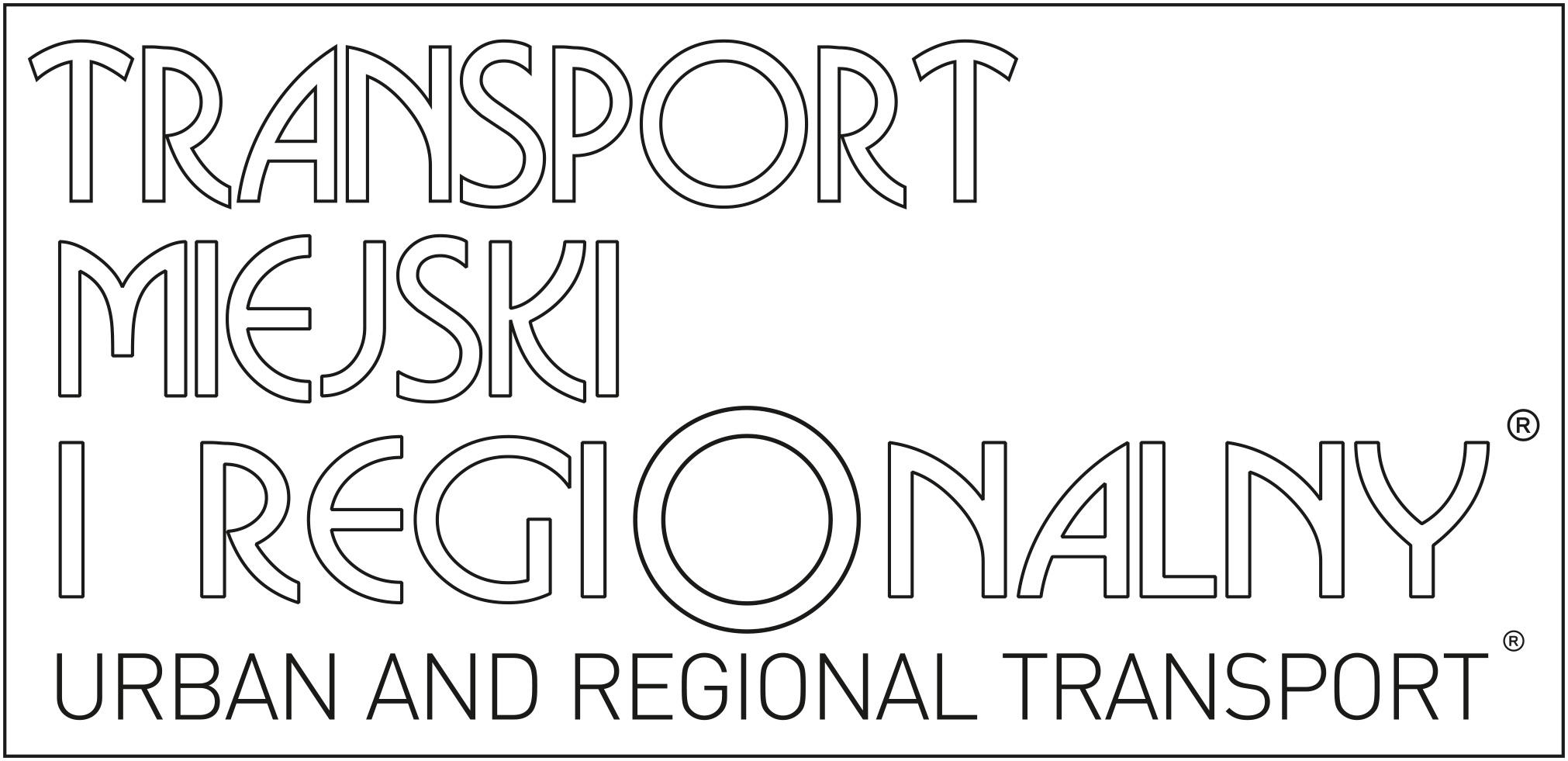
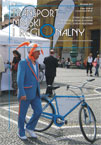 SITK RP
SITK RP 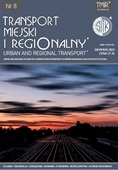 SITK
SITK 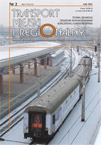 SITK RP
SITK RP 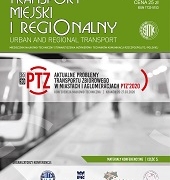
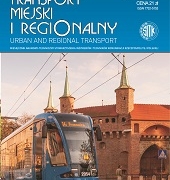 SITK RP
SITK RP 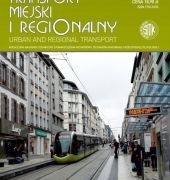 SITK RP
SITK RP 
 SITK RP
SITK RP SITK RP
SITK RP